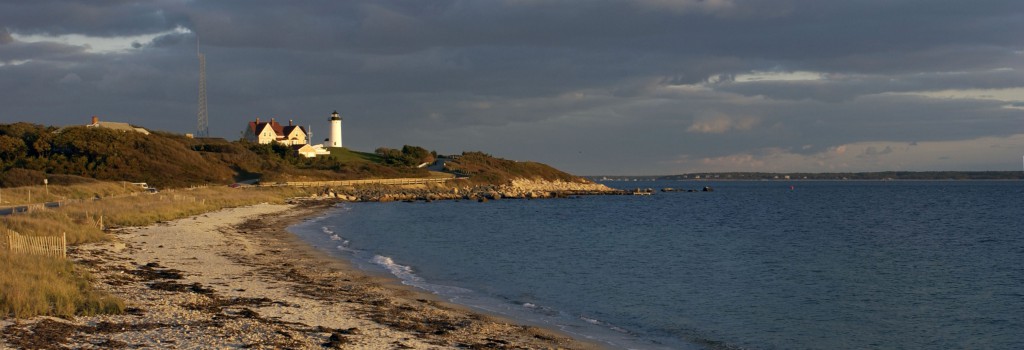Healthy Coastal Ecosystems
2024-2025 Projects
- Jill Carr of the University of Massachusetts Boston, Forest Schenck of the Massachusetts Division of Marine Fisheries, and Alison Frye of Salem Sound Coastwatch: Restoring Eelgrass: Identifying best practices for a seed-based approach
- Ken Foreman and Ketil Koop-Jackobson of Marine Biological Laboratory, and Matt Long of the Woods Hole Oceanographic Institution
Reduce, Restore, Recover: Little Pond ecosystem’s response to sewering - Jared Goldstone of Woods Hole Oceanographic Institution and Helen Poynton of University of Massachusetts Boston: Waste to Watershed: How contaminants of emerging concern impact mussels
2022-2023 Projects
- Malcom Scully, Woods Hole Oceanographic Institution, and Rocky Geyer, Woods Hole Oceanographic Institution: Modeling Unprecedented Low Dissolved Oxygen (Hypoxia) in Southern Cape Cod Bay
2020-2022 Projects
- Megan Winton, Atlantic White Shark Conservancy, and Greg Skomal, Massachusetts Division of Marine Fisheries: Development and testing of a near real-time white shark forecast system for Cape Cod, Massachusetts
- Adrian Jordaan, University of Massachusetts-Amherst, and Michelle Staudinger and Allison Roy, U.S. Geological Survey: Closing the loop: characterizing habitat requirements, movements, and life stage linkages of river herring in Massachusetts watersheds
- Scott Gallager and Jim Churchill, Woods Hole Oceanographic Institution: Assessing the Seasonal and Storm-Impacted Transport and Biological Fate of Micro- and Nanoplastics Discharged from Wastewater Treatment Facilities into Massachusetts Coastal Waters
- Jennifer Jackman, Salem State University; Owen Nichols and Lisa Sette, Center for Coastal Studies; Stephanie Wood, Univ. of Massachusetts-Boston; George Maynard, Cape Cod Commercial Fishermen’s Alliance; Cynthia Wigren, Megan Winton, and Marianne Long, Atlantic White Shark Conservancy; and Allen Rutberg, Tufts University: Human Dimension of Rebounding Population of Seals and White Sharks on Cape Cod, MA
2018-2020 Funded Projects
- Mark Hahn and Chris Reddy, Woods Hole Oceanographic Institution: Halogenated marine natural products: A potential risk to human health?
- Jefferson Turner, University of Massachusetts Dartmouth: Harmful phytoplankton blooms in Buzzards Bay, Mass.
- Amanda Spivak, Woods Hole Oceanographic Institution: Pond management and carbon storage in salt marshes
- Di Jin, Porter Hoagland, and Hauke Kite-Powell, Woods Hole Oceanographic Institution: Valuation of ecosystem benefits of living shorelines
2016-2018 Funded Projects
- Robert Howarth and Roxanne Marino, Cornell University: Nitrogen pollution and recovery from nitrogen pollution in a seagrass-dominated estuary: A whole ecosystem experiment
- Jesús Pineda, Karl Helfrich, Victoria Starczak and Annette Govindarajan, Woods Hole Oceanographic Institution: Hydraulic jumps at an ecological hotspot
- Ivan Valiela, Marine Biological Laboratory: Is the recent decreased atmospheric nitrogen deposition improving water and vegetation quality in Waquoit Bay estuaries
- Jarrett Byrnes, UMass-Boston: Evaluating the relationship between kelp forest ecosystems and water temperature in the Southern Gulf of Maine
2014-2016 Funded Projects
- Robinson W. Fulweiler, Boston University: Examining significant changes to the nitrogen cycle in Waquoit Bay
- Anne Giblin, Joe Vallino, Marine Biological Laboratory, and Gary Banta, University of Roskilde: The impacts of increased nitrogen loadings on decomposition in salt marshes: Does eutrophication enhance marsh accretion or erosion?
- Robert Howarth and Roxanne Marino, Cornell University: Nitrogen pollution and recovery from nitrogen pollution in a seagrass-dominated estuary: A whole ecosystem experiment.
- Laela Sayigh, Mark Baumgartner, James Partan, and Michael Moore, Woods Hole Oceanographic Institution: Development of an automatic mass stranding alert system
- Jesús Pineda, Karl Helfrich, Woods Hole Oceanographic Institution, and Jose da Silva, University of Porto: Reconciling distributional patterns with foraging processes in an ecological hotspot: Aggregation of humpback whales, prey abundance and distribution, and the shoaling of non-linear internal waves
- Jefferson Turner and Brian Howes, University of Massachusetts-Dartmouth: “Rust Tides” of the toxic dinoflagellate Cochlodinium polykrikoides in Buzzards Bay
- Sibel Karchner and M. Hahn, Woods Hole Oceanographic Institution: Molecular risk assessment in wildlife using a non-destructive assay
- Carl Lamborg, Woods Hole Oceanographic Institution, J. Logan, Massachusetts Division of Marine Fisheries, & R. Carmichael, Dauphin Island Sea Lab: A history of mercury impacts to Waquoit Bay clams
2012-2014 Projects
- Mechanisms for Success and Potential Impacts of an Invasive Seaweed Heterosiphonia japonica in New England Coastal Waters
M. Bracken and C. Thornber - Quantifying the Impact of Low Oxygen Conditions on Sediment Methane Fluxes in Waquoit Bay.
R.W. Fulweiler - Passive Acoustic Monitoring of Biological Sounds and Ambient Noise Levels at the Proposed Cape Wind Site
T.A. Mooney, L. Sayigh, P. Tyack, A. Bocconcelli, D. Nowacek - Shifts in Greenhouse Gas Emissions and Productivity of Coastal Wetlands in Response to Anthropogenic N Loading and Rising Sea Level
S. Moseman-Valtierra, J. Tang, K.D. Kroeger - Reconciling Distributional Patterns with Foraging Processes in an Ecological Hotspot: Aggregation of Humpback Whales, Prey Abudance and Distribution, and the Shoaling of Non-Linear Internal Waves.
J. Pineda, K. Helfrich, V. Starczak, J. da Silva, D. Wiley - It’s Noisy Out There! Using Dolphins and Whales to Teach Students about Humans Influence Coastal Ecosystems
L. Sayigh, M.C. Curran
2010-2012 Projects
- Assessing The Impact of Hypoxia/Anoxia on Sediment Denitrification and the Production of Nitrous Oxide in Waquoit Bay
Robinson Fulweiler, Boston University - Does Epiphytic Nitrogen Fixation Lead to a Spiral of Increasing Eutrophication in Shallow Estuaries
Robert Howarth, Roxanne Marino; Cornell University
Focus Area Summary
Issues related to healthy coastal ecosystems on the coast of Massachusetts and in Northeastern U.S. are similar to those issues experienced in other areas of the U.S. coastline. Decline in water quality, loss of habitat, invasive species, and increasing pressure on coastal resources are just some of the items of concern. A significant portion of the research portfolio of the Woods Hole Sea Grant program during the past few years has focused on gaining a better understanding of nutrient enrichment in coastal watersheds, characterization of habitats for resource species and threats to those habitats, and ocean acidification

